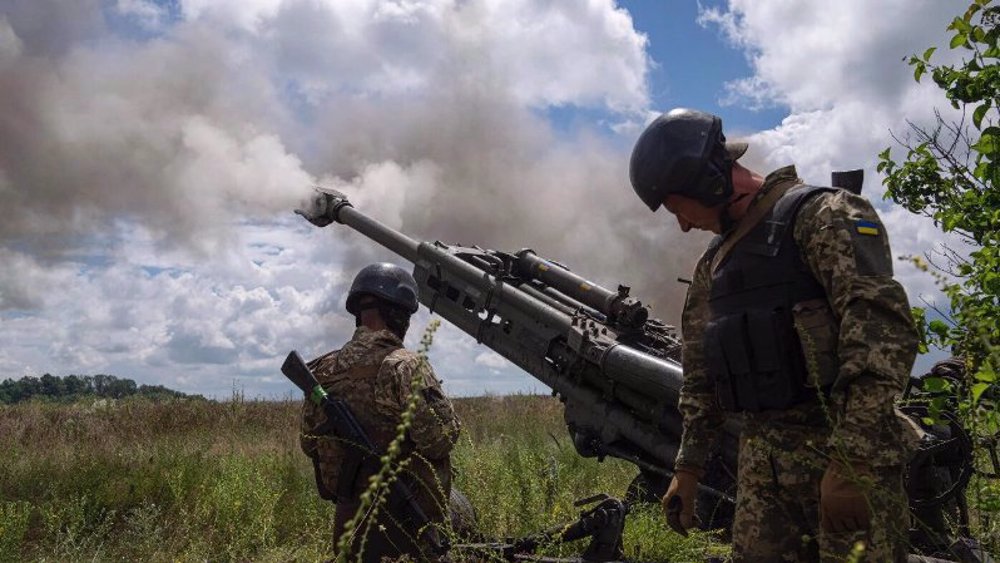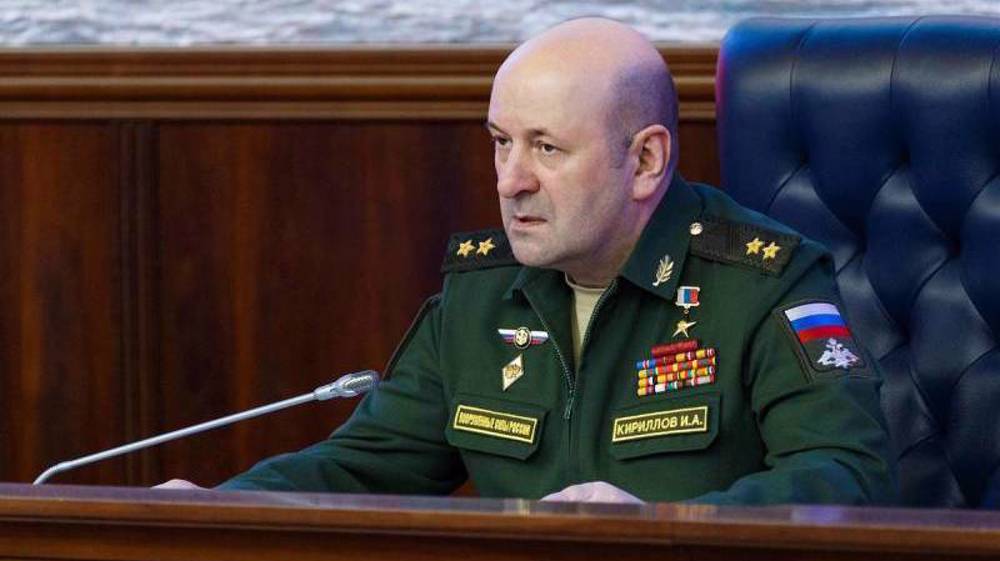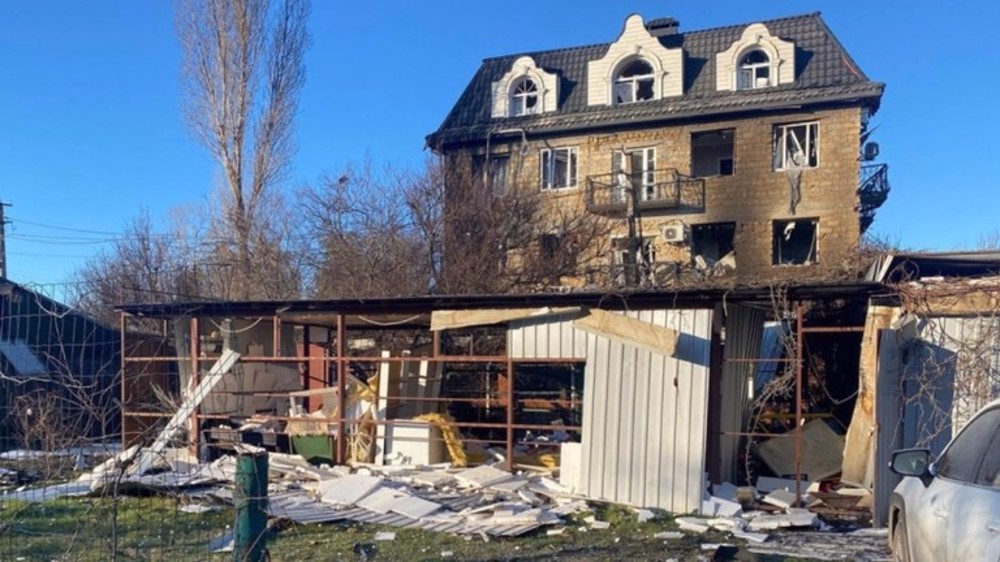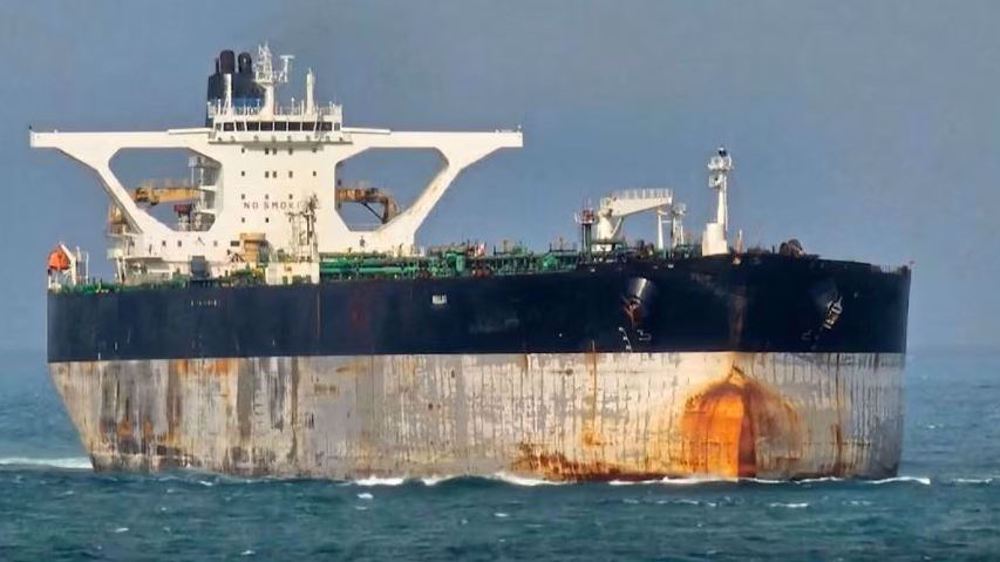Russia takes case of ‘Ukraine’s dirty bomb plan’ to UN
Russia has doubled down on a claim that Ukraine is developing a “dirty bomb” to use on its own soil, notifying the United Nations about the allegation and planning to raise the issue at the Security Council.
Moscow alleges that Ukraine is developing a “dirty bomb” on its own territory, with Lieutenant General Igor Kirillov, the chief of the Russian Radiation, Chemical, and Biological Protection Force, saying on Monday that Kiev was in the “final stage” of developing such a bomb.
Kirillov’s warning came just a day after Russia’s Defense Minister Sergei Shoigu accused Ukraine of preparing a “provocation” involving the use of an alleged dirty bomb. Russian Foreign Minister Sergei Lavrov and the Kremlin’s spokesman Dmitry Peskov have made similar claims.
Moscow says Ukraine could detonate such a device in a false-flag operation to frame Russia.
This is while Ukraine and its allies reject the allegation. On Sunday, the US Department of State released a statement jointly issued by Britain, the US, and France, claiming that London, Washington, and Paris did not consider Russian warnings about the possibility of Ukraine using a “dirty bomb” reasonable.
Moscow, however, sent a letter to the UN on Monday, informing the world body about such a threat. It is expected that Russia presses the case at the UN Security Council on Tuesday.
Unnamed diplomats told Reuters that Russia planned to raise the issue at a closed-door meeting at the UNSC.
“We will regard the use of the dirty bomb by the Kiev regime as an act of nuclear terrorism,” Russia’s UN Ambassador Vassily Nebenzia told UN Secretary-General Antonio Guterres and the Security Council in the letter, seen by Reuters.
Peskov on Tuesday also said that the West was foolish to dismiss the threat of the use of a dirty bomb by Ukraine.
Kiev in response claims the dirty bomb allegation shows Russia is planning such an attack and is seeking to blame Ukraine.
The Kremlin alleges that Kiev has ordered two organizations to develop a dirty bomb, without giving any evidence.
While it does not have the devastating effects of a nuclear weapon, a dirty bomb could still contaminate large swathes of land with radioactive waste.
In a related development, the UN nuclear watchdog, the International Atomic Energy Agency (IAEA), said that it was preparing to send inspectors to two unidentified Ukrainian sites at Kiev’s request, both already subject to its inspections.
Ukrainian Foreign Minister Dmytro Kuleba said the IAEA’s inspectors would receive full access to the two designated sites, calling on Moscow to demonstrate the same transparency as Ukraine.
According to a report by Russia’s state news agency RIA, the two sites involved are the Eastern Mineral Enrichment Plant in the central Dnipropetrovsk region and the Institute for Nuclear Research in Kiev.
Russia began a military offensive against Ukraine on February 24. Since the onset of operations, the US and its European allies have imposed waves of sanctions on the Kremlin and sent numerous batches of advanced weapons to Ukraine.
Moscow has been critical of the weapons supplies to Kiev, warning that they will prolong the war.
VIDEO | Press TV's news headlines
Hamas: Israel escalating ceasefire violations in Gaza
Venezuela's government declares unwavering unity behind Maduro
VIDEO | Global outcry over Venezuela president abduction
Iran keeps wheat import subsidies despite cutting other food supports
Venezuelan military stands with acting president after US kidnapping of Maduro
VIDEO | Press TV's news headlines
VIDEO | Protesters in Toronto slam US kidnapping of Venezuelan president











 This makes it easy to access the Press TV website
This makes it easy to access the Press TV website